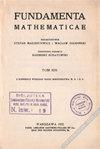Filtration games and potentially projective modules
IF 0.5
3区 数学
Q3 MATHEMATICS
引用次数: 1
Abstract
The notion of a \textbf{$\boldsymbol{\mathcal{C}}$-filtered} object, where $\mathcal{C}$ is some (typically small) collection of objects in a Grothendieck category, has become ubiquitous since the solution of the Flat Cover Conjecture around the year 2000. We introduce the \textbf{$\boldsymbol{\mathcal{C}}$-Filtration Game of length $\boldsymbol{\omega_1}$} on a module, paying particular attention to the case where $\mathcal{C}$ is the collection of all countably presented, projective modules. We prove that Martin's Maximum implies the determinacy of many $\mathcal{C}$-Filtration Games of length $\omega_1$, which in turn imply the determinacy of certain Ehrenfeucht-Fraisse games of length $\omega_1$; this allows a significant strengthening of a theorem of Mekler-Shelah-Vaananen \cite{MR1191613}. Also, Martin's Maximum implies that if $R$ is a countable hereditary ring, the class of \textbf{$\boldsymbol{\sigma}$-closed potentially projective modules}---i.e., those modules that are projective in some $\sigma$-closed forcing extension of the universe---is closed under $<\aleph_2$-directed limits. We also give an example of a (ZFC-definable) class of abelian groups that, under the ordinary subgroup relation, constitutes an Abstract Elementary Class (AEC) with Lowenheim-Skolem number $\aleph_1$ in some models in set theory, but fails to be an AEC in other models of set theory.过滤游戏和潜在的投影模块
\textbf{$\boldsymbol{\mathcal{C}}$-过滤的}对象的概念,其中$\mathcal{C}$是Grothendieck类别中的一些(通常很小的)对象集合,自2000年左右平盖猜想的解决以来已经变得无处不在。我们在一个模块上引入\textbf{$\boldsymbol{\mathcal{C}}$-过滤游戏的长度 $\boldsymbol{\omega_1}$},特别注意$\mathcal{C}$是所有可数投影模块的集合的情况。我们证明了Martin极大值隐含了许多长度为$\omega_1$的$\mathcal{C}$ -过滤对策的确定性,而这些过滤对策又隐含了某些长度为$\omega_1$的Ehrenfeucht-Fraisse对策的确定性;这使得Mekler-Shelah-Vaananen定理得到了显著的加强\cite{MR1191613}。此外,Martin极大值表明,如果$R$是一个可数的遗传环,那么\textbf{$\boldsymbol{\sigma}$-封闭的潜在投影模块}的类——即那些在宇宙的某些$\sigma$ -封闭强迫扩展中是射影的模——在$<\aleph_2$ -有向极限下是封闭的。我们还给出了一类(zfc可定义)的阿贝尔群的例子,在普通子群关系下,在集合论的某些模型中构成具有Lowenheim-Skolem数$\aleph_1$的抽象初等类(AEC),但在其他集合论模型中却不是AEC。
本文章由计算机程序翻译,如有差异,请以英文原文为准。
求助全文
约1分钟内获得全文
求助全文
来源期刊

Fundamenta Mathematicae
数学-数学
CiteScore
1.00
自引率
0.00%
发文量
44
审稿时长
6-12 weeks
期刊介绍:
FUNDAMENTA MATHEMATICAE concentrates on papers devoted to
Set Theory,
Mathematical Logic and Foundations of Mathematics,
Topology and its Interactions with Algebra,
Dynamical Systems.
 求助内容:
求助内容: 应助结果提醒方式:
应助结果提醒方式:


